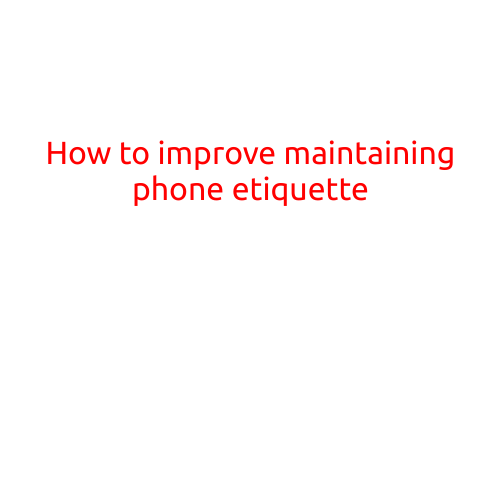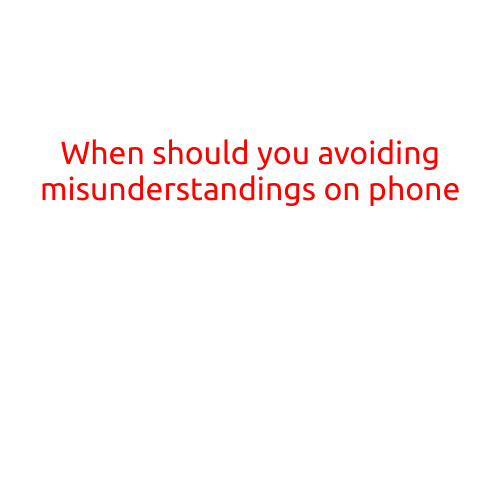
How to Improve Maintaining Phone Etiquette
In today’s digital age, our phones have become an essential tool for communication, work, and daily life. With the constant ringing, buzzing, and beeping, it’s easy to get caught up in the whirlwind of notifications and forget basic phone etiquette. Whether you’re a business professional, student, or stay-at-home parent, maintaining good phone etiquette is crucial for effective communication, building strong relationships, and even job opportunities.
In this article, we’ll explore the importance of phone etiquette, common mistakes to avoid, and practical tips to improve your phone manners.
The Importance of Phone Etiquette
Phone etiquette is not just about saying please and thank you; it’s about being respectful, considerate, and mindful of others during phone conversations. When you maintain good phone etiquette, you:
- Build trust and credibility with others
- Avoid misunderstandings and miscommunications
- Enhance your professional reputation
- Show respect for others’ time and boundaries
- Improve your overall communication skills
Common Mistakes to Avoid
Before we dive into the tips, let’s cover some common mistakes to avoid:
- Answering calls in inappropriate settings: Try to avoid answering calls in public bathrooms, during meetings, or in quiet spaces.
- Being too loud or monotonous: Keep your voice at a reasonable level, and try to maintain a conversational tone.
- Talking too long or dominating the conversation: Make sure to listen attentively and wrap up conversations within reason.
- Not returning calls or messages promptly: Respond to calls and messages in a timely manner to show respect and importance.
- Sending unsolicited texts or calls: Only contact others when necessary or when asked to do so.
Practical Tips to Improve Your Phone Etiquette
Now that we’ve covered the common mistakes, let’s dive into some practical tips to improve your phone etiquette:
- Use a clear and respectful tone: Speak clearly, and avoid using jargon or technical terms that might confuse the other person.
- Be mindful of volume levels: Adjust your volume levels according to your surroundings to avoid disturbing others.
- Use proper language and grammar: Spell-check your texts and avoid using abbreviations or slang that might be misinterpreted.
- Return calls and messages promptly: Make it a habit to respond to calls and messages within a reasonable timeframe.
- Use phone etiquette in text conversations: Keep your texts concise, use proper punctuation, and avoid using ALL CAPS.
- Be respectful of others’ time: Keep your phone calls brief and to the point, and avoid calling during non-business hours.
- Use technology to your advantage: Use features like call waiting, voicemail, and email to manage your phone calls and messages efficiently.
Conclusion
Maintaining good phone etiquette is essential for effective communication, building strong relationships, and even career growth. By avoiding common mistakes and following practical tips, you can improve your phone etiquette and become a more considerate and respectful communicator. Remember, phone etiquette is not just about rules; it’s about being mindful and respectful of others and showing genuine interest in their thoughts and opinions. By incorporating these tips into your daily life, you’ll become a more confident and efficient communicator, both personally and professionally.





